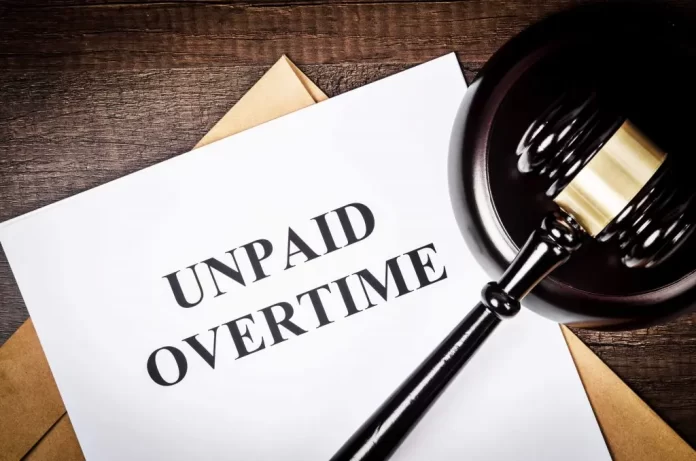As 2024 begins, employees are finding that their bargaining power isn’t what it used to be. About a year ago, job opportunities and rising wages were abundant, but now, those trends are reversing, with fewer openings and slower wage growth. A recent comprehensive study by Rebel’s Guide to Project Management unveils a troubling trend – the amount of unpaid overtime labor that workers are contributing saw a staggering uptick last year. They surveyed 3,000 employees, with some astonishing observations.
The data reveals a collective surge of 46 billion unpaid overtime hours in 2023, dwarfing figures from the previous year. On average, workers contributed an additional 4.5 hours per week for no compensation, totaling an extra 233 hours annually.
Residents of New Hampshire bore the brunt of this trend, reporting nearly 10 extra hours of unpaid overtime each week. Conversely, Montanans experienced slight decrease in such hours.
When it comes to California workers, it was found that they worked an extra 3.9 hours per week of unpaid overtime last year, compared to 2022. This equates to 202 hours over the year per employee, and collectively as a state this amounts to a whopping 4,985,244,469 hours.
The top 5 states who worked more unpaid overtime in 2023:
1. New Hampshire (9.9 more hours)
2. Iowa (7.6 more hours)
3. Alaska (7.4 more hours)
4. Utah (6.3 more hours)
5. North Carolina (6.1 more hours)
The 5 states with the smallest increases in unpaid overtime:
50. Montana (0.6 hours less)
49. Hawaii (0.9 more hours)
48. Idaho (1.9 more hours)
47. Maryland (2.1 more hours)
46. Arizona (2.7 more hours)
Interactive map showing the increase in unpaid overtime in 2023 by state (click on ’embed’ to host on your site)
“We were surprised to see that employees are working over the equivalent of a month’s effort on average – for free, and above and beyond their normal hours,” says Elizabeth Harrin of Rebel’s Guide to Project Management. “We’ve moved beyond quiet quitting and the power is back with employers.”
According to Harrin, the modern concept of ‘free time’ has evolved.
“What was once considered personal time has increasingly been ceded to employers,” she says. “The dynamics of work are changing again, and that has implications for managing burnout, fair compensation practices, policy, and more.”
Harrin, who is the author of Managing Multiple Projects, provides the following tips on what employees can do to be more efficient with their time and reduce their working hours:
1. Track Time: Log your work hours to identify patterns of unpaid labor. Use this data to discuss workload with your employer, and negotiate fair compensation for overtime hours, especially when taking on roles that extend beyond the typical workday.
2. Set Boundaries: Clearly define work hours and stick to them. Use your out of office message to let people know when you will next be available, and don’t download work apps to your personal phone.
3. Prioritize Ruthlessly: Focus on tasks that align with key project goals. If it’s not critical, delegate or defer it.
4. Leverage Technology: Automate repetitive tasks and learn how to use all the features of project management tools to streamline workflows.
5. Communicate Efficiently: Opt for asynchronous communication when possible to avoid unnecessary meetings. Use AI assistants to summarize meeting takeaways and create minutes.
6. Educate Yourself: Understand the labor laws and regulations regarding overtime. Know your rights and when to seek guidance.
7. Lead by Example: Don’t expect colleagues to work uncompensated overtime. Manage your own hours and advocate for employees and peers for fair compensation.


















